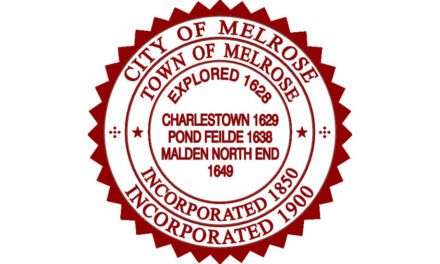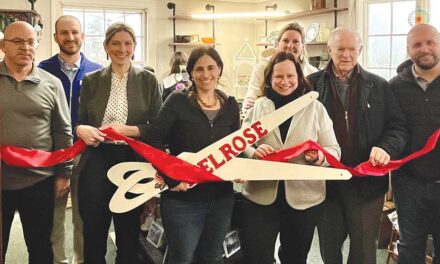Published in the April 27, 2018 edition
MELROSE — This week the aldermen passed a resolution supporting the continued use of alcohol-free advertising on MBTA property.
Recently the Fiscal and Management Control Board at the cash-strapped T voted to reverse the MBTA ban on alcohol ads. Buses travel Melrose roads every day and there are three commuter rail stops and a subway station, all now eligible to carry those types of ads.
The resolution approved by the Board of Aldermen Monday voices strong objection to the T’s change of heart on alcohol advertising and spells out the reasons why.
“(R)esearch shows that greater exposure to alcohol advertising is associated with increased drinking in underage youths. For each ad viewed by an underage youth (above the monthly average of 23), youth drink 23% more…
“(T)he cost of underage drinking for Massachusetts residents was approximately $1.2 billion in 2013. The MBTA’s expected revenue from alcohol advertising ($2.5 million) does not compare…
“(A) large number of students in Massachusetts rely upon the MBTA to commute to and from school and other activities…
“(I)n 2009, alcohol advertisements on MBTA subway cars promoted alcohol to 54.1% of student passengers (ages 11-18) in Boston on an average weekday; and,
“(E)arly exposure to alcohol advertisements contributes to positive attitudes and perceptions about alcohol use in youth and predicts future intention to drink and likelihood of underage drinking…
“(T)he restrictions under current MBTA advertising guidelines have the potential to increase higher-risk youth exposure to alcohol advertising…
“(B)anning alcohol advertisement would be a highly effective method to reduce youth drinking, resulting in 7,609 fewer deaths and a 16.4% drop in alcohol- related life-years lost…
“(T)he healthy choice should not be the difficult choice for Massachusetts youth.”
As a result, the aldermen and Mayor Gail Infurna support:
• Guidelines that prohibit alcohol advertising on MBTA property.
• Reducing the number of underage youths exposed to alcohol across the state.
• Decreasing the financial burden placed on Commonwealth residents created by youth alcohol abuse.




